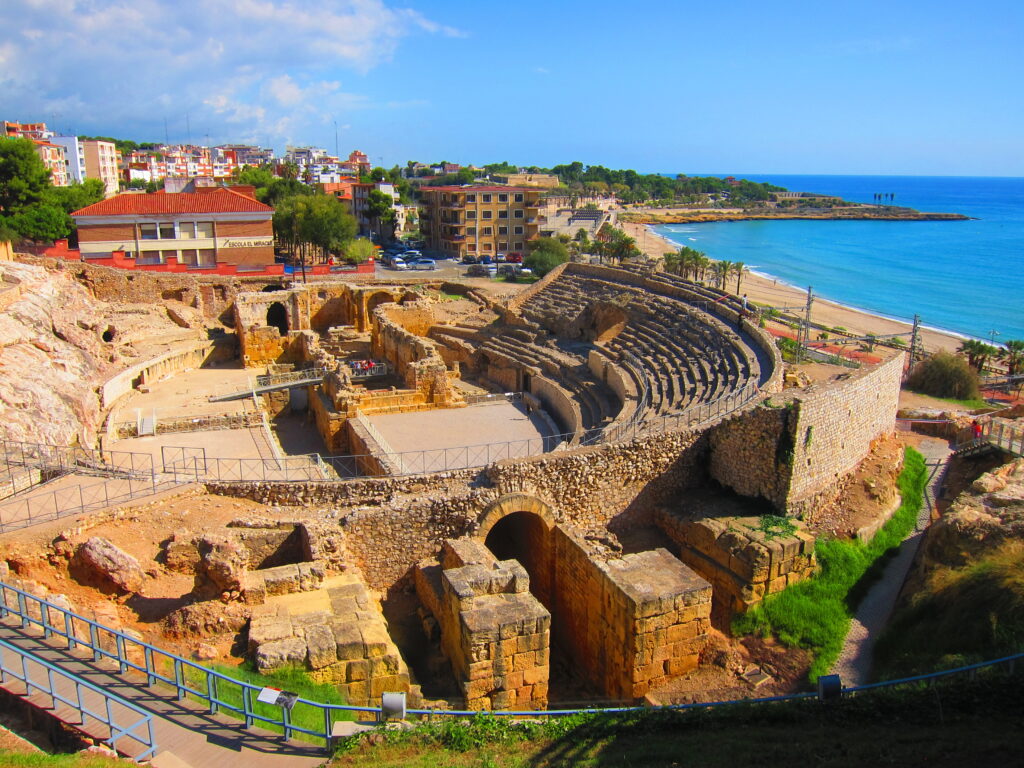GwinnettForum | Issue 15.98 | March 29, 2016
NOW SPORTING a new name is the library at Georgia Gwinnett College in Lawrenceville. The State Board of Regents has approved naming the library for the first president of the college, Dan Kaufman. See details in Upcoming below.
TODAY’S FOCUS: Police Checks of Beverage Retailers Continue with GUIDE Funding
EEB PERSPECTIVE: Stubbornness on Garland Hearing May Signal Woes for GOP
ANOTHER VIEW: Wants To See Improvement in Georgia’s General Assembly
SPOTLIGHT: Arbor-Nomics Tree Service
FEEDBACK: Reaction to Article on Driving Under the Influence in Georgia
UPCOMING: Regents Approve Naming of GGC Library for Dan Kaufman
NOTABLE: ARC Recognizes Suwanee Youth Leaders and Lawrenceville’s Prelude
RECOMMENDED: The Remarkable Andrew by Dalton Trumbo
GEORGIA TIDBIT: Peachtree City One of Most Successful Planned Communities
TODAY’S QUOTE: What Teachers Can Do for Aspiring Authors
MYSTERY PHOTO: Here’s Another Beautiful Picture Asking Where It’s Located
LAGNIAPPE: PCOM Student Heads to Johns Hopkins This Summer To Study Aging
Police checks of beverage retailers continue with GUIDE funding
By Jessica Andrews-Wilson
LAWRENCEVILLE, Ga., March 29, 2016 | Gwinnett United In Drug Education, Inc. (GUIDE) is a non-profit community-based substance abuse prevention agency that has been serving Gwinnett County since 1986. GUIDE is an expert resource in positive youth development and substance abuse prevention and works together with various community partners to improve community conditions for a safe and healthy Gwinnett.
In response to a significant increase in underage drinking in Gwinnett County in 2002, GUIDE began using the Communities Mobilizing for Change on Alcohol model to reduce the number of youth in our community consuming alcohol under age.
This large-scale prevention effort has been possible because of the collaboration of multiple organizations in Gwinnett County, including GUIDE’s work with the Gwinnett Coalition for Health and Human Services. In 2007, GUIDE’s efforts to prevent underage drinking expanded when the Gwinnett Coalition received a Drug Free Communities grant that provided funding for compliance checks.
Compliance checks help ensure that alcohol retailers check IDs of every customer and do not sell to those under 21. In order to conduct these checks, police officers train underage decoys to go into restaurants, drug stores, convenience stores and grocery stores to attempt to buy alcohol. If they are sold or served alcohol, officers then go in and give citations to the employee. These checks “are an important community tool for reducing illegal alcohol sales to minors and to promote community normative change,” according to the U.S. Department of Health and Human Services.
Since October 2008, Gwinnett County Police Department officers have conducted approximately two such checks a month in unincorporated Gwinnett County and within a few select cities. The payments for underage decoys continue to be funded by the Drug Free Communities grant through the Gwinnett Coalition. GUIDE later expanded this strategy and started to fund the compliance checks for the City of Lilburn Police Department in 2013 and the City of Snellville Police Department in 2014 after being selected as a Georgia Alcohol Prevention Project provider through the Georgia Department of Behavioral Health and Developmental Disabilities.
By tracking results of these police interventions and figuring out the compliance rates, GUIDE continues to measure the effectiveness of this strategy in reducing commercial access of alcohol to teens and underage young adults.
Between October 2014 and September 2015, police visited 372 stores in unincorporated Gwinnett County and the cities of Grayson, Lilburn and Snellville. Out of these stores, 323 did not sell to the underage decoy, for a compliance rate of 87 percent. This is an increase from 85 percent between October 2013 and September 2014.
Findings show that when compliance checks are done on a regular basis, alcohol retailers focus more on training their employees about the importance of checking IDs, and in turn, employees are less likely to sell alcohol to minors. Thanks to the efforts of local police departments, it is clear that compliance checks are making a difference in Gwinnett County!
We invite you to visit www.guideinc.org to stay connected with prevention efforts throughout the upcoming year.
Stubbornness on Garland hearing may signal woes for GOP
By Elliott Brack, editor and publisher, GwinnettForum
MARCH 29, 2016 | There’s no doubt that the reverberations about President Obama nominating Merrick Garland for the Supreme Court are far from over.
 Forgetting your politics, it seems to us that the most penetrating statement that has been made was when President Obama said, “Presidents do not stop working in the final year of their term. Neither should a senator.”
Forgetting your politics, it seems to us that the most penetrating statement that has been made was when President Obama said, “Presidents do not stop working in the final year of their term. Neither should a senator.”
Nowhere in the Constitution does it say that during an election year, or any other time, the president should not nominate court justices. In fact, the Constitution says forth rightfully that the president shall nominate justices. Then it follows that this nomination only moves with the “advice and consent” of the Senate.
As we well know, the Senate can reject a nominee. After all, it’s their duty not to dawdle, but to vote on them.
We need look no farther back that the Robert Bork nomination by President Ronald Reagan in 1987. That year the Senate voted 58-42 against that nomination. That was when there were 54 Democrats controlling the Senate. Note that four Republicans joined in spoiling this nominee. There’s some indication that Senate Republicans are still smarting 29 years later about the rejection of the Bork nomination, and are using the Garland proposal as pay-back. Interestingly, the present Republican majority has 54 votes, with 44 Democrats in the Senate. There are also two independents voting with the Democrats, giving the same 54-46 partisan split as in 1987, only reversed this time.
President Reagan eventually nominated Anthony Kennedy of California to the Supreme Court to replace Powell. Kennedy won his seat on the Court by a bi-partisan 97-0 vote, since he was “widely viewed by conservatives and liberals alike as balanced and fair.” That’s much the same language which is being applied to Merrick Garland based on his performance on the U.S. District Court for the District of Columbia.
But remember, this isn’t about Garland. The very day that Justice Antonin Scalia died, Kentucky Senator Mitch McConnell was vowing that the Senate would not at all consider President Obama’s nominee. This is nothing short of obstruction of the Constitution, these days fully backed by right-wing Republicans and the Tea Party.
The ironic aspect is that with President Obama sending forth a relatively conservative nominee, knowing that the process might be difficult, the nomination of Merrick Garland might be the best the Republicans could hope for. Especially should Democrats prevail in the November election, Republicans may rue the day that they laid down the gauntlet on this nomination.
Already there seem to be more and more cracks in the Republican opposition to Garland. Where the GOP ranks at first seemed rock-solid, now several Republicans have said that they would meet with Garland. At least one Senator, Jerry Moran of Kansas, says the Senate should have hearings on his nomination. While it takes 60 votes for confirmation, a long way off from the present Senate make-up, still you wonder if Senator McConnell can hold his ranks solid.
The average Americans, polls say, wonder why the Senate could not hold hearings on the nomination. That would at least have them doing their duty, even if they rejected his nomination.
Do your duty, Mitch McConnell. Hold hearings, then vote on the Garland nomination, up or down. If not, people are going to question the Republican Party even more, as it fights an uphill battle from a weak position to try to elect a GOP president. McConnell’s Senate may be shooting itself in the foot, and even putting the future of the Republican party in jeopardy.
Wants to see improvement in Georgia’s General Assembly
By George Wilson
MARCH 29, 2016 | The General Assembly for 2016 has ended. What has it accomplished to betterment of the lives of individual Georgians? From my viewpoint: too much what they have done is to continue to cave in to special interests. As a result, I vacillate between two distinct notions about the effectiveness of the General Assembly in Georgia and how to improve their overall performance.
![]() On one hand, they seem to spend too much time and energy on the three concepts that drive the ideology behind the state GOP…guns, ovaries, and prayer and of course cutting taxes. They failed to address the problems of transportation in the metro area, especially light rail, and expanding Medicaid as the Affordable Health Care Act envisioned and paid for by the Federal Government.
On one hand, they seem to spend too much time and energy on the three concepts that drive the ideology behind the state GOP…guns, ovaries, and prayer and of course cutting taxes. They failed to address the problems of transportation in the metro area, especially light rail, and expanding Medicaid as the Affordable Health Care Act envisioned and paid for by the Federal Government.
Also, how about an ethics reform package that would bring us up from the bottom in the nation in corruption? Perhaps the solution is a larger salary that would attract higher quality candidates to run for office and not represent the industries that they are employed with. Perhaps, allowing for a period longer than 40 days working on, investigating and contemplating the issues of the day would be one solution.
On the other hand, some people prefer just to have them meet every two years and then get them out of town before they do too much damage. To be sure, this has some merit, if the obstacles of increased power to the Governor and the bureaucracy can be overcome.
Also, the questions about the need to appropriate emergency funds, answer issues brought up by the judicial system and local governments on a timely basis need to be resolved. Lastly, we really do need some serious discussions about some changes in this institution. Because Georgia continues to move backward in many areas—health care, infrastructure, education and ethics reform.
(From the editor: Dear George: your ill-conceived idea of allowing the Legislature to meet more often than 40 days runs up against GwinnettForum’s Continuing Objective of wanting the legislators to meet less. Meeting once every two years is our goal. Aren’t we all for less government? What better way than to keep the doors of the Capitol open for legislation only once every two years. –eeb)
Arbor-Nomics Tree Service
 The public spiritedness of our sponsors allows us to bring GwinnettForum.com to you at no cost to readers. Today’s sponsor is Arbor-Nomics Tree Service of Norcross. As a full-service tree expert, Arbor-Nomics offers the full range of tree care, from pruning, diagnostics, fertilizing and tree appraisal, to careful removal of limbs or the entire tree. In business since 1980, the company owner, Barry Smith, has a degree in forestry from the University of Kentucky. Customers continually praise the company efforts, such as “roping off limbs when cutting, to protect plants below.” Happy customers continue to return.
The public spiritedness of our sponsors allows us to bring GwinnettForum.com to you at no cost to readers. Today’s sponsor is Arbor-Nomics Tree Service of Norcross. As a full-service tree expert, Arbor-Nomics offers the full range of tree care, from pruning, diagnostics, fertilizing and tree appraisal, to careful removal of limbs or the entire tree. In business since 1980, the company owner, Barry Smith, has a degree in forestry from the University of Kentucky. Customers continually praise the company efforts, such as “roping off limbs when cutting, to protect plants below.” Happy customers continue to return.
- To learn more, visit www.arbor-nomicstree.com, or call 770-368-0072.
- For a list of other sponsors of this forum, go to: Our sponsors.
Reaction to article on Driving Under the Influence in Georgia
Editor, the Forum:
![]() In Judge (Pam) South’s recent article, toward the end of the article, she says that DUIs are expensive and cost thousands of dollars for a lawyer. These lawyers who specialize in DUI cases are going to try to get people off or lessen the charge.
In Judge (Pam) South’s recent article, toward the end of the article, she says that DUIs are expensive and cost thousands of dollars for a lawyer. These lawyers who specialize in DUI cases are going to try to get people off or lessen the charge.
It seems to me if you want to get through to people to stop driving while under the influence, that the fine should be much higher for the first offense. Or maybe the penalty for fighting the charge and losing the case should include mandatory jail time or other penalty.
I do applaud that most every state participates in a data base where DUI convictions are shared so driver’s can’t get a license from another state to drive on.
— George Graf, Palmyra, Va.
Dear George: Thanks for your comments. In almost every year the Georgia Legislature considers or reviews changes to the DUI laws to increase the deterrence factor. Mothers Against Drunk Driving has been asking the Legislature to consider more jail time for a first offense and for an ignition interlock device on first offense DUIs. (A car won’t start without a breath test–you must pay for the device and monitoring yourself.)
We’ve also learned that a refusal to take a blood/breath/urine test during a DUI investigation can lead to a one year suspension of the license (if it’s a Georgia license.) In some jurisdictions, when testing is refused, the officer gets a search warrant and has the defendant’s blood drawn for testing (a judge issues the warrant on the basis of probable cause; the defendant is forced to submit to a blood draw by a nurse or medical staff; the blood is sent to the crime lab.) It’s really hard to challenge a blood test result.—eeb
- Send Feedback and Letters to: elliott@brack.net
Regents approve naming of GGC library for Dan Kaufman
The University System of Georgia Board of Regents has approved the naming of Georgia Gwinnett College’s library in honor of the outstanding and distinguished service of the college’s founding president, Dr. Daniel J. Kaufman. The Daniel J. Kaufman Library and Learning Center will be dedicated in a formal ceremony later this year.
Dr. Staś Preczewski, GGC president, says: “We are delighted that the Board of Regents approved our request to honor Dr. Kaufman. While the college itself and its innovative approach to higher education are his permanent legacy, naming the library for him emphasizes his enthusiastic, heartfelt dedication to learning. This recognition has been desired both by the campus community and our extended community.”
Kaufman was named president of the then-unnamed college in 2005, and quickly organized a leadership team charged with opening the institution one year later. In August of 2006, GGC welcomed 118 students. Over the next several years, the college experienced dramatic growth, and today enrolls nearly 12,000.
 More importantly, Kaufman and his team established the college as a new model for higher education. It was literally built from the ground up to support student success, regardless of the level of academic preparation, learning style, work schedule or financial barrier.
More importantly, Kaufman and his team established the college as a new model for higher education. It was literally built from the ground up to support student success, regardless of the level of academic preparation, learning style, work schedule or financial barrier.
With a commitment to student engagement and mentorship, GGC has achieved student retention rates on par with state universities. About half of its graduates are the first members of their families to earn a bachelor’s degree. GGC has been twice noted as the most ethnically diverse Southern regional college by U.S. News & World Report magazine.
In its recommendation to approve the naming of the GGC library, the USG Committee on Real Estate and Facilities said, “His commitment and leadership during his eight-year tenure helped establish a firm foundation for GGC that will positively impact students and the community for many generations.”
“I am deeply honored that the Board of Regents of the University System of Georgia would approve naming the GGC Library and Learning Center after me,” said Kaufman. “We designed the building to be the intellectual center of campus for both students and faculty. I can think of no greater honor than to have such a critical facility for the support of student success bear my name.”
Kaufman departed the college in 2013 to serve the community as president of the Gwinnett Chamber of Commerce.
Gwinnett will save money if residents accept “paperless billing”
Gwinnett Tax Commissioner Richard Steele announces that paperless billing is now available for property tax. Paperless billing is now an option for taxpayers due to state legislation that passed in 2015.
![]() Steele says: “It’s quick and easy to sign up. You will receive your property tax bill securely by email in August, rather than receiving a paper bill through the mail.” said Steele.
Steele says: “It’s quick and easy to sign up. You will receive your property tax bill securely by email in August, rather than receiving a paper bill through the mail.” said Steele.
Paperless tax billing could save the money for postage. Presently the county mails out about 330,000 tax bills. Should half the taxpayers respond to paperless billing, the savings would amount to nearly $150,000 annually.
A link is on the homepage at GwinnettTaxCommissioner.com. Upon arrival at the ‘Property Search’ page, find the property and click the ‘Parcel Number’ button, then the blue ‘Enroll in Paperless Billing’ button.
Spring means scammers again try to steal your money
Green leaves, flowers and pollen aren’t the only sign that spring is coming to Northeast Georgia. Scammers targeting utility customers are springing up as well, according to Jackson Electric Membership Corporation (EMC).
![]() Jackson EMC Director of Customer Service Brent Cochran says: “Scammers were fairly quiet over the winter, but it seems that spring has brought them out of hibernation. We’re receiving reports from customers that they’re being contacted by phone and email by imposters claiming to be their utility company, warning them that their bill is overdue.”
Jackson EMC Director of Customer Service Brent Cochran says: “Scammers were fairly quiet over the winter, but it seems that spring has brought them out of hibernation. We’re receiving reports from customers that they’re being contacted by phone and email by imposters claiming to be their utility company, warning them that their bill is overdue.”
What all the scams have in common is the threat of imminent power disconnection and the demand to pay immediately. The latest scam uses an email entitled “Is Your Jackson Electric Bill Due Tomorrow?” which provides a “Pay Bill” button that is simply a link to mint.com, a bill paying service not connected to Jackson EMC.
Cochran adds: “Legitimate utilities do not call customers and threaten immediate disconnection, and they never request immediate payment, by Green Dot card or any other means. Once a utility customer loads a Green Dot card or clicks a Pay Bill button and gives scammers their information, their money is gone and there’s nothing their utility can do about it. Please don’t give these thieves your hard-earned money. If you have any doubt whatsoever about who is contacting you, stop, pick up the phone book and call your utility’s office first.”
ARC recognizes Suwanee Youth Leaders and Lawrenceville’s Prelude
The Atlanta Regional Commission (ARC) has awarded a CREATE Community Award for two Gwinnett cities, Suwanee and Lawrenceville.
 The ARC recognized Suwanee Youth Leaders – a community-based program of the City of Suwanee – a 2015 CREATE Community Award in the area of Educational Excellence. Several Suwanee Youth Leader alumni plus City Assistant Manager Denise Brinson and Downtown and Business Development Manager Adam Edge were on hand at the March 23 ARC board meeting to accept the award.
The ARC recognized Suwanee Youth Leaders – a community-based program of the City of Suwanee – a 2015 CREATE Community Award in the area of Educational Excellence. Several Suwanee Youth Leader alumni plus City Assistant Manager Denise Brinson and Downtown and Business Development Manager Adam Edge were on hand at the March 23 ARC board meeting to accept the award.
Now in its third year, Suwanee Youth Leaders (SYL) is an eight-month leadership program for high school sophomores and juniors who attend public, private, or home-based schools and live within three Gwinnett County Public School districts. The program centers on civic involvement, leadership skills, and volunteer opportunities.
The City of Lawrenceville’s signature summer event, PRELUDE, received the Atlanta Regional Commission’s (ARC) 2015 CREATE Community Award for its focus on Arts and Culture through a partnership with the Aurora Theatre.
For over ten years, the City has hosted the PRELUDE celebration on the eve of July 4th as a way to honor America’s Day of Independence. Each year, before the stunning display of fireworks, the event features an outdoor stage performance hosted by Lawrenceville’s Aurora Theatre. With past productions like Camelot, Big River: The Adventures of Huckleberry Finn, and South Pacific, the City of Lawrenceville and the Aurora Theatre continue to bring Tony Award winning classics to life in Downtown Lawrenceville.
Grayson author releases 7th book geared at future graduates
Author, speaker and financial advisor Mark DiGiovanni of Grayson has released his seventh book, Future Value: Money Lessons for Life. The book, for sale now on Amazon.com, is geared for recent or soon-to-be graduates, providing practical, easy to understand financial advice on setting a foundation for a successful career and life.
Future Value is a book of short, three- to four-page essays covering basic lessons on building a solid financial future. The advice is not just about managing assets, but covers aspects of life that affects personal finance, including the environmental, spiritual and psychological factors that can dictate a secure future versus instability.
DiGiovanni’s book is the product of a career devoted to understanding money and a passion for teaching. He was previously an industrial arts careers teacher. Mark continues to teach; his stated mission is to “enlighten, enable and enrich.”
The Remarkable Andrew
A novel by Dalton Trumbo
 Released in 1941, this book is by an author who refused to testify before the House Un-American Activities Committee in 1947. He later was blacklisted by the film industry. This book is like a play, with the narrator describing the rising to power of Adolph Hitler at a time when America has not entered World War II. The story is set in a remote part of Colorado, the area where Trumbo grew up. Essentially, it’s a story of local, entrenched politics, told against the background of the lead-up to World War II. Trumbo later emigrated to Mexico, where he continued to write scripts for movies, including Academy Awards winners. Later it was revealed that his scripted films using pseudonyms included Roman Holiday, Exodus, Spartacus, and Thirty Seconds Over Tokyo. In 2015, a movie, Trumbo, was released about his life.–eeb
Released in 1941, this book is by an author who refused to testify before the House Un-American Activities Committee in 1947. He later was blacklisted by the film industry. This book is like a play, with the narrator describing the rising to power of Adolph Hitler at a time when America has not entered World War II. The story is set in a remote part of Colorado, the area where Trumbo grew up. Essentially, it’s a story of local, entrenched politics, told against the background of the lead-up to World War II. Trumbo later emigrated to Mexico, where he continued to write scripts for movies, including Academy Awards winners. Later it was revealed that his scripted films using pseudonyms included Roman Holiday, Exodus, Spartacus, and Thirty Seconds Over Tokyo. In 2015, a movie, Trumbo, was released about his life.–eeb
An invitation: what books, restaurants, movies or web sites have you enjoyed recently? Send us your recent selection, along with a short paragraph (100 words) as to why you liked this, plus what you plan to visit or read next. –eeb
Peachtree City one of most successful planned communities
Peachtree City, called “the most successful planned community in the nation,” encompasses 24 square miles in Fayette County. The city is situated about 22 miles south of Hartsfield-Jackson Atlanta International Airport and is accessible by Interstate 85 as well as Georgia Highways 54 and 74.
 The CSX Railroad offers direct freight rail service, and its Falcon Field is an airport popular with private pilots. According to the U.S. Census Bureau the population of Peachtree City in 2014 was 35,063.
The CSX Railroad offers direct freight rail service, and its Falcon Field is an airport popular with private pilots. According to the U.S. Census Bureau the population of Peachtree City in 2014 was 35,063.
Peachtree City sits on land that was first settled by Native Americans about 2,000 years ago. In 1821 Fayette County was formed from land bought from the Creeks. Settlers who had fought with the Marquis de Lafayette in the American Revolution (1775-83) named the county after him. One of the last skirmishes of the Civil War (1861-65) was fought near present-day Peachtree City. The area remained mostly rural until the mid-20th century.
In the 1950s a group of real estate developers, Bessemer Securities, amassed land in Fayette County to build a planned community. It was decided that the town would be divided into smaller hamlets, each with its own stores, schools, and recreational areas. Named Peachtree City, it was chartered on March 9, 1959.
The city is home to both domestic and international companies, many situated in the 2,600-acre industrial park. Some of the major businesses in Peachtree City are Cooper Lighting, Fitel Interconnectivity, Hoshizaki-America, Panasonic, and TDK.
The city offers many attractions that are rare in a suburban community. The decorative fountain in front of the City Plaza complex was a gift from Japanese businesses located in Peachtree City. The city also has two lakes of approximately 250 acres each, three golf courses, five public pools, four parks, numerous outdoor sports and recreation areas, a large tennis complex, a BMX bicycle track, and a 2,200-seat outdoor amphitheater. One of the most appealing aspects of life in Peachtree City is the 70 miles of paved trails that surround the town. Residents use the paths for walking, bicycling, or riding their golf carts, a popular alternate mode of transportation. The trails connect to churches, schools, and neighborhoods.
The town was carefully designed with residential areas well removed from industrial areas. City regulations include restrictions on tree cutting, limitations on the height of fences and business signs, and regulated buffer zones around all of the town’s lakes, streams, and wetlands.
Today, Peachtree City has five “villages” within the city limits: Aberdeen, Braelinn, Glenloch, Kedron, and West Side. Plans may include a new village that will add about 4,000 new residents to the city. In the original design Peachtree City was to have as many as 80,000 inhabitants. The current land plan allows between 40,000 to 50,000 residents to call Peachtree City home.
- To access the Georgia Encyclopedia online, go to http://www.georgiaencyclopedia.org
Here’s another beautiful picture asking where it’s located
With the last Mystery Photo being a relatively easy one, this week’s selection might be a little harder. But isn’t this a beautiful scene, with the land and water bumping up in what is obviously a town setting. But where is the town and what is the structure in front? Perhaps a few clues will guide you. Send answers to elliott@brack.net with your home town.
 When eight different readers get a right answer, the photo must have been easy. First in last week was
When eight different readers get a right answer, the photo must have been easy. First in last week was
Neal Davies, Decatur with the right answer — Mount Saint Helens. It was from a photo relayed to us by Susan McBrayer of Sugar Hill.
Also getting the right answer were Bob Foreman, Grayson; Debbie Krewson, Flowery Branch; Tim Keith, Sugar Hill; Mike Wood, Peachtree Corners; Randy Sutt, Duluth; and Becky Panetta, Dacula. Sending in lots of detail was George Graf of Palmyra, Va., who wrote: “Mount Saint Helens is an active stratovolcano located in the Cascade Mountains, Skamania County, Washington, in the Pacific Northwest. Making the first European sighting was Commander George Vancouver and the officers of HMS Discovery on May 19, 1792, while surveying the northern Pacific Ocean coast. Vancouver named the mountain after British diplomat Alleyne Fitzherbert (1753-1839), then had a newly created title of Baron St. Helens. St Helens is a town on the Isle of Wight in England.”
PCOM student heads to Johns Hopkins this summer to study aging
Ashley Peterson (DO ’19) will participate in the 2016 Medical Student Training in Aging Research MSTAR program at Johns Hopkins University School of Medicine in Baltimore She is a student at the Georgia Campus – Philadelphia College of Osteopathic Medicine (GA-PCOM). As part of the program, Peterson will spend eight weeks, from June 3–July 29, participating in research on geriatrics and end of life care. She will also present a poster about her research project at the Annual Meeting of the American Geriatrics Society in San Antonio Texas, May 18-20, 2017. GA-PCOM alum Antonio Graham, DO, encouraged Peterson to apply to the program when they met during a seminar at the college. Dr. Graham participated in the MSTAR program in medical school and now works in internal medicine at Johns Hopkins.
GwinnettForum is provided to you at no charge every Tuesday and Friday. If you would like to serve as an underwriter, click here to learn more:
- MORE: Contact Editor and Publisher Elliott Brack at: elliott@gwinnettforum.com

















Follow Us